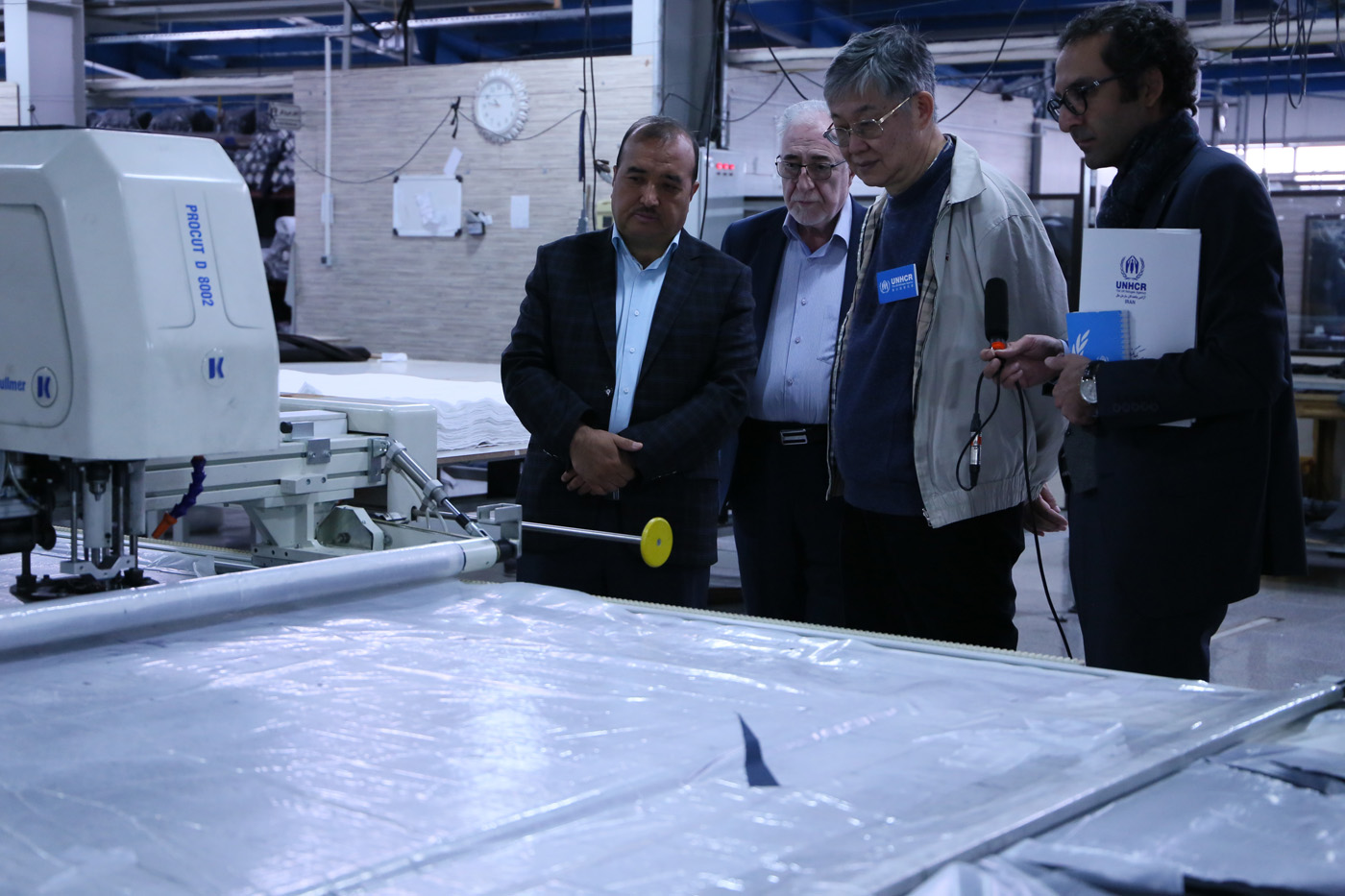Iran helps Afghan refugees to survive and thrive
Esfahan/Shiraz, Islamic Republic of Iran
When Alijan Jafari fled the war in Afghanistan as a 10-year-old boy, he could not have imagined the life that awaited him. He was just happy to be alive.
In 1983, he and his family travelled nearly 2,000 km to seek safety in neighbouring Iran. There, Alijan grew up working informally in textile shops. With time, he learnt to sew and extended his skills into tailoring suits.
In his first foray into business, he rented some space in a basement, bought 3 sewing machines and started making men’s suits. But he faced many restrictions; as a refugee, he was not officially allowed to work.
“Then I found out about the UNHCR revolving fund,” he said, referring to a small business loan programme managed by the UN Refugee Agency and the Iranian government. “The loan was important but it also gave me the permit to work legally.”
Today Alijan, 45, co-owns a garment factory and five clothing stores with an Iranian partner in Iran’s Esfahan province. He has done well for himself but has not forgotten his roots. Among his 300 employees are vulnerable Afghan refugees and Iranians.

Alijan (Left) introducing the factory equipment to Mr. Shih Wing Ching (second from the right).
Among them is Afghan refugee Sakaneh, who lost her father to cancer when she was 14. Wracked by grief and back problems, her mother could not cope. So Sakaneh quit middle school and became the sole breadwinner for her family of seven.
Considering the family’s situation, UNHCR provides cash assistance for their housing deposit. It also referred them to Alijan’s factory.
After a week of training at the factory, Sakaneh started doing simple tasks like ironing. Three years later, she is producing blazers and trousers. Her income helps to support her mother and siblings who are still in school.
Now 19, she is grateful for the work but admits her breadwinner role has taken its toll. She has long given up her dream of becoming a doctor: “This is the best arrangement for us now, I shouldn’t be thinking of things that are not achievable.”
Like Sakaneh, Zeynab Shaban is trying to rebuild her life. After losing her husband some years ago, the Afghan widow struggled to survive by working in sub-standard conditions in Shiraz province. She tried to start her own tailoring workshop, but kept failing due to problems with cash flow and finding a stable place to rent.
UNHCR supported Zeynab with 13 sewing machines and accessories, and she gradually built a reputation for the quality of her products. She and her staff now supply local hospitals with hospital gowns, bed sheets and other items.

Over the years, Zeynab has trained over 200 women – refugees and Iranians – from vulnerable families. Some work at the family-friendly workshop but most work from home in order to take care of their children.
One of her Iranian employees, Massoumeh, has been working here for 3 years. “I’ve gained experience and I can work faster now. I feel proud to supplement the family income to help put my daughter through university.”
Inspired by her staff, Zeynab vows to do more: “Our goal is to expand the workshop to include more vulnerable families.”
Suit-maker Alijan also has big dreams. He plans to expand his business to the Iranian capital, Tehran. And while he converted his refugee status to a work permit in Iran, he still hopes to set up shop in Afghanistan one day.
“The conditions for business are there but security is not good,” he explained. “I’m monitoring the situation in Afghanistan every day. Once security allows, I’ll be the first to go back and start a business. Even if it’s just 80% secure, I’ll go.”
Recognising that many refugees cannot go home in the near future as a result of insecurity, Iran has taken measures that enable them to survive, even thrive in exile. Refugees are allowed to attend local schools, and can avail of vocational training and livelihood opportunities. They can also participate in the health insurance scheme. Taken together, these steps have helped refugees like Alijan, Sakaneh and Zeynab to sustain their lives while helping their own people and contributing to their host community.
Hosting nearly 980,000 refugees from Afghanistan and Iraq, Iran is one of the largest refugee-hosting countries in the world. A team from UNHCR China travelled there by end of last year with Hong Kong philanthropist Shih Wing Ching to witness first-hand how the refugees are coping after nearly 40 years away from home.
END
About UNHCR:
The Office of the United Nations High Commissioner for Refugees (UNHCR) was established on 14 December 1950 by the United Nations General Assembly. The agency is mandated to lead and coordinate international action to protect refugees and resolve refugee issues. It strives to ensure that everyone has the right to seek asylum and find safe refuge in another state, with the option to voluntarily return home when conditions are conducive for return, integrate locally or resettle to a third country. UNHCR has twice won the Nobel Peace Prize, in 1954 for its ground-breaking work in helping the refugees of Europe, and in 1981 for its worldwide assistance to refugees.
Share on Facebook Share on Twitter
